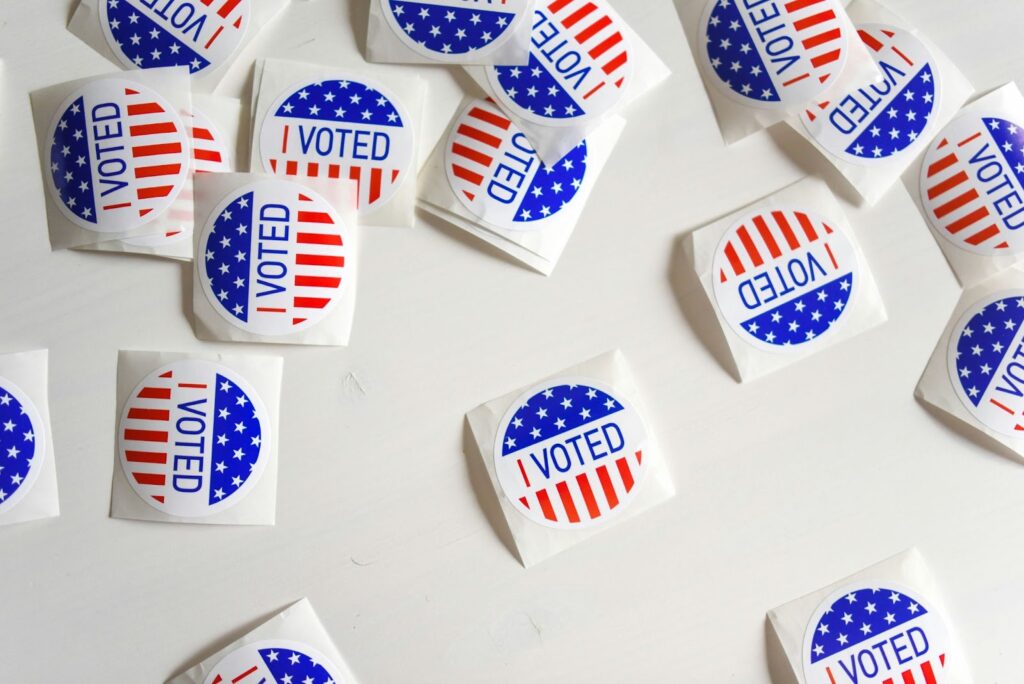
Gateway influencers and platforms within Black online spaces are targeting and feeding disinformation to approximately 40 million subscribers, according to a new report.
The report, published on June 25 by Onyx Impact, identifies and tackles the disinformation forums and tactics that are present in and aimed at Black online communities, naming six online mediums that are staples in reaching or targeting Black Americans: Gateway influencers and platforms, far-right activists and media outlets, the Black manosphere, Black extreme nativists and separatists, health skeptics and foreign actors.
Alex Blocker, a junior political science major and strategic communications minor at Howard University from Columbia, South Carolina shared his encounter with disinformation on social media. “Personally, I unfollowed the ShadeRoom,” he said.
Blocker, who worked on the Bernie Sanders campaign back in 2020, shared his disapproval of the media company, agreeing with the findings of the report that identified the network as a gateway source of political misinformation.
The report goes further to suggest that this spread of misinformation seems to be a collaborative effort amongst right-wingers who share the agenda of spreading far-right claims and instilling conservative ideologies in Black audiences.
The idea that conservatives may be intentionally trying to skew the Black vote is not foreign.
According to NBC News, two conservative activists were fined by the Federal Communications Commission (FCC) in 2020 for making more than 1,000 illegal robocalls to deter Black Detroit voters from voting by mail.
This case exemplifies the unique challenge of combating misinformation in elections, and Blocker touched on the impact of misinformation on young Black voters.
“Information media shapes what people believe and think,” he said. “When misinformation spreads, it fosters ignorance, as sensationalist content often prioritizes emotion over accuracy.”
Blocker believes this distortion, driven by profit rather than community benefit, undermines informed decision-making and complicates political engagement by presenting a skewed view of issues important to Black voters..
Zion Eldridge, a junior political science major at Howard University and who worked on the Biden-Harris campaign, expanded on the same issue. He highlighted social media algorithms, which often tailor content to users’ existing beliefs, regardless of its accuracy.
“One of the big problems with social media algorithms is that they show us what we want to hear, whether it’s misinformation or not,” he said.
He cited recent examples of misinformation targeting public figures, such as false narratives about Vice President Kamala Harris’ race, background, and achievements.
“In our political system, many people are disengaged, and their perceptions are shaped by inaccurate social media content,” Eldrige said. “This systemic use of misinformation, especially for attacking opponents, reflects a troubling immaturity, as seen with figures like Donald Trump.”
Both Blocker and Eldridge ultimately expressed the idea that Black voters are targeted by misinformation due to systemic and socio-economic challenges that make these communities partially vulnerable to manipulation and voter suppression efforts.
When considering how administrations and students at Howard feel about the methods used to target black young voters, Amber Dodd, associate editor at The Dig, and Howard University’s Office of Communications (OUC), agreed with the same sentiments that Blocker and Eldridge both shared: there is a time and place for politics.
“Digital is an outgrowth of print, in my opinion, so these are just two platforms that are telling the same story for different audiences depending on how people receive their news,” she said.
Dodd highlighted that while digital platforms like X, formerly known as Twitter, Bloomberg News, and the New York Times offer diverse ways to access information, they also raise questions about accuracy and bias.
“Even outside of racial categories, this generation is mobile, and they are set on creating digital spaces where news is not only accurate and pertinent but also trustworthy,” she said.
She emphasized that this generation, which is highly mobile and engaged with digital spaces, is left to find exaggerated lies on platforms not designed to share appropriate truths.
Dodd highlighted the growing influence of platforms such as TikTok in news dissemination and acknowledged that while they enhance information reach and engagement, they also complicate the media landscape that ultimately provides a space in which the spread of misleading information can occur.
Esosa Osa, CEO of Onyx Impact, believes “Black people deserve brilliant, resilient information sharing ecosystems that build trust, power and community.”
The report proposes ways to combat the spread of disinformation through Black influencers and outlets.
A key step noted in the report is to identify as many trusted Black messengers and media as possible. Blocker expressed a similar perspective as he advised steering clear of traditional legacy outlets such as CNN, NBC, and ABC, citing their “profit motives.”
He mentioned that this is not to say that these networks do not produce good information, but that there are a lot of things to be “missing and desired.”
He also asserted that the Shade Room and Spiritual World should “not be used for political consumption.”
In contrast, Blocker recommended podcasts like“The Karen Hunter Show” owned by a Howard graduate, and websites such as Raw Story, Truthout, Jacobin, The Guardian and Common Dreams.
Similarly, Eldridge urged the young black community to be mindful of certain popular media accounts as their content is either “highly taken out of context or they’re not true.”
Instead, he suggested platforms like Walt Street Journal, Politico and Kamala HQ on TikTok, as well as political commentators such as Roland Martin.
Copy edited by Camiryn Stepteau





















